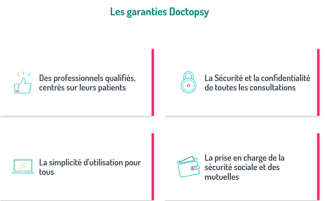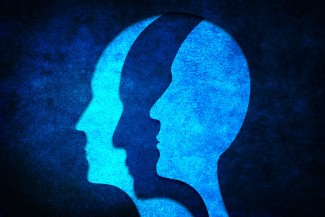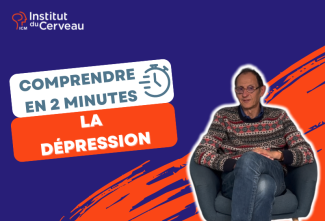Once depression has been diagnosed, several therapeutic approaches can be implemented.
Drug Treatments
Medication is the primary treatment option. Most of these treatments act by balancing the production of neurotransmitters, namely serotonin, norepinephrine, and dopamine. Several therapeutic molecules are sometimes combined.
Recently, a new molecule called ESKETAMINE has been approved for sale as a nasal spray for the treatment of depression in the United States.
Discussion of this new drug with Prof. Fossati.
However, 38% of patients do not respond to drug treatments and 54% show no remission of depression symptoms after 12 weeks of treatment.
Transcranial Magnetic Stimulation
For these patients, known as “pharmacoresistant,” physical treatments are envisaged.
These therapies are based on electrical or transcranial magnetic stimulation (non-invasive) of areas of the brain identified as being involved in the development of the illness.
Transcranial magnetic stimulation involves using a magnetic field on the cerebral cortex to modify the electrical activity that enables information to be transmitted between neurons. This therapy has proven effective in other psychiatric and neurological conditions and appears to work in cases of depression.
Electroconvulsive Therapy (ECT)
Electroshock therapy, which is slightly more invasive, has proven highly effective in the most severe cases. This no longer involves a magnetic field but rather electrical stimulation of specific regions of the cortex.
Finally, for the most severe cases of depression that are resistant to other therapies, deep brain stimulation is appropriate. These stimulations are achieved using electrodes implanted in specific regions of the brain which, like a pacemaker for the heart, deliver continuous electrical stimuli to neurons in highly targeted areas of the brain. To date, only 200 patients worldwide have been treated using this technique.
Behavioral Therapies
In combination with these treatments, psychotherapy, behavioral therapy, and meditation are therapeutic approaches that are very beneficial in preventing the recurrence of major depressive episodes.
Neurofeedback, for example, a technique used for self-relaxation and stress reduction, could help improve attention problems in people with depression.
Connected and mobile devices enable remote contact with patients and the collection of more information about them, and are rapidly expanding, and can thus increase the potential for action by health professionals tenfold. Connected devices will enable us to have more direct contact with patients and obtain real-time information in order to conduct more detailed research that is more in tune with patients’ everyday realities.
At Paris Brain Institute
The startup WEFIGHT, which was incubated at Paris Brain Institute, is launching ViK Depression, a virtual companion designed to support people suffering from depression and their loved ones by helping them monitor their treatment.
The startup DOCTOPSY,also incubated at Paris Brain Institute, offers an online consultation service dedicated to psychiatry, psychology, nutrition, and addiction treatment.

Another startup incubated at Paris Brain Institute, HEALTHY MIND, offers virtual reality headsets for healthcare professionals to reduce patient anxiety before and after surgery. This approach could soon be extended to patients suffering from anxiety disorders.
Yet another Paris Brain Institute startup, ADSCIENTIAM, offers digital devices that enable continuous monitoring of the progression of the illness in real life in order to speed up therapeutic decision-making.




